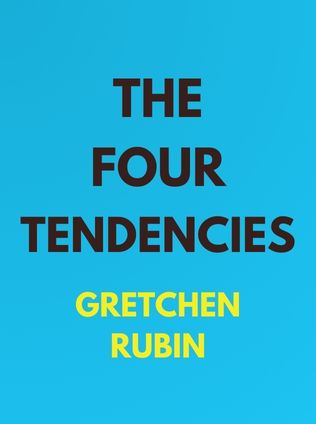
The Four Tendencies
The Indispensable Personality Profiles That Reveal How to Make Your Life Better (and Other People's Lives Better, Too)
By Gretchen Rubin
Published 09/2017
About the Author
Gretchen Rubin is a renowned author, podcaster, and speaker, best known for her work on happiness and human nature. A graduate of Yale Law School, Rubin initially pursued a career in law, even clerking for Supreme Court Justice Sandra Day O'Connor. However, her passion for understanding human behavior and finding ways to live a happier, more fulfilling life led her to a career in writing. Rubin's keen observations and ability to distill complex psychological ideas into accessible, practical advice have made her a leading voice in the self-help and personal development fields.
Her books, including "The Happiness Project" and "Better Than Before," have resonated with millions of readers worldwide. In these works, Rubin explores the intricacies of habit formation, the pursuit of happiness, and how understanding oneself can lead to a more satisfying life. Her ability to blend scientific research with personal anecdotes and actionable advice has garnered her a dedicated following. Rubin’s insights into human nature, especially her concept of the Four Tendencies, have provided people with valuable tools to navigate their personal and professional lives more effectively.
Main Idea
At the heart of Gretchen Rubin's work is the idea that understanding how we respond to expectations can unlock the key to greater happiness, productivity, and self-mastery. Rubin’s Four Tendencies framework is a simple yet profound system that categorizes people into one of four types based on their responses to internal and external expectations. These tendencies—Upholders, Questioners, Obligers, and Rebels—offer a lens through which we can better understand our motivations and behaviors, as well as those of the people around us. Rubin’s main idea is that by identifying our tendency, we can tailor our approach to life’s challenges and opportunities in a way that aligns with our natural inclinations, thereby enhancing our effectiveness and well-being.
Table of Contents
- Introduction to the Four Tendencies
- The Upholder Tendency
- The Questioner Tendency
- The Obliger Tendency
- The Rebel Tendency
- Applying the Four Tendencies in Life
- Conclusion
Introduction to the Four Tendencies
Gretchen Rubin’s Four Tendencies framework is rooted in a single, powerful question: "How do you respond to expectations?" This question may seem simple, but Rubin’s exploration of its implications has revealed a profound insight into human behavior. Rubin categorizes expectations into two types: internal (those we place on ourselves) and external (those others place on us). Through her research, Rubin discovered that people fall into one of four categories based on how they meet these expectations.
The Four Tendencies are:
- Upholders: Those who meet both internal and external expectations.
- Questioners: Those who meet internal expectations but question external ones.
- Obligers: Those who meet external expectations but struggle with internal ones.
- Rebels: Those who resist all expectations, both internal and external.
Rubin’s framework is more than just a personality test; it’s a tool for understanding ourselves and others in a deeper, more nuanced way. By recognizing our tendency, we can develop strategies that work with our natural inclinations rather than against them, leading to greater success and fulfillment in all areas of life.
Sign up for FREE and get access to 1,400+ books summaries.
You May Also Like
The Subtle Art of Not Giving a F*ck
A Counterintuitive Approach to Living a Good Life
By Mark MansonRich Dad Poor Dad
What the Rich Teach Their Kids About Money - That the Poor and Middle Class Do Not!
By Robert T. KiyosakiHow To Win Friends and Influence People
The All-Time Classic Manual Of People Skills
By Dale CarnegieFreakonomics
A Rogue Economist Explores the Hidden Side of Everything
By Steven D. Levitt and Stephen J. Dubner



















